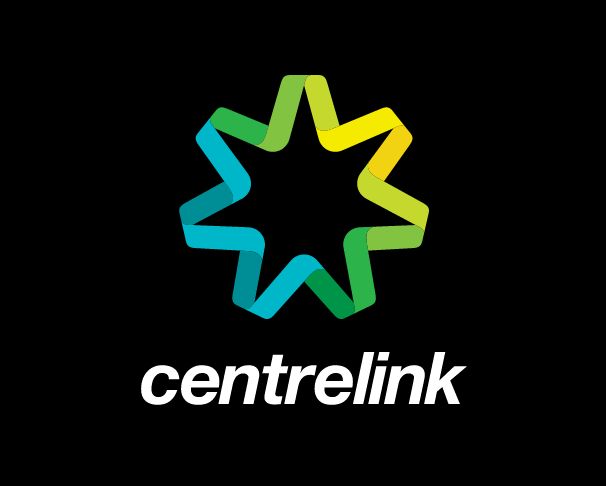
This article is part 3 and the final part of a series of articles looking at the #NotMyDebt movement from a knowledge management perspective.
“What I really have loved about this is that there has been a real building of community because you’ve got people that otherwise wouldn’t have necessarily mixed with each other that have mixed with each other, and then you see the evening out of power, dynamics or expertise.” – Lyndsey Jackson
It was interesting to me that, during our interview about #NotMyDebt, both its leader – Community Builder and Digital Strategist Lyndsey Jackson – and I stumbled somewhat whenever we used the word ‘leader.’ That Lyndsey is the leader of #NotMyDebt – a highly effective and dynamic movement powered by a network of volunteers – cannot be in any doubt. She came up with the idea about starting it, for one thing. When the robodebt controversy arose, whereby thousands of disadvantaged people have been unexpectedly hit with debts from the government that they may not even owe, Lyndsey saw that there was a need to be filled:
LJ: “So when (robodebt) started making headlines, it did seem like one of those spaces where because I’ve worked with Not-for-Profits and governments for over 10 years doing websites I knew that it would be really difficult and slow for an organization to respond to this. And it was the holiday time (and the Not-for-Profit sector was either away or functioning on minimal staff). I thought there are enough ingredients in place to at the very least start to build a website that would curate information, news, blog posts, things like that, and just starting to put it in one central place. To see if we could break down what it was that was happening.”
When the website and social media accounts were set up, and the movement was underway, Lyndsey was the mainstay who kept an enthusiastic network of volunteers supported and focused.
Still, I do understand why we stumbled over the word ‘leader’ with its commonly held association of top-down dominance. We are both influenced by work in community, where community development principles dictate that good leadership is a form of facilitation; a leader in that world should be a supportive, rather than an authority, figure. Lyndsey describes herself as a community builder, having worked in regional communities (IT skill building) and also in online communities:
LJ: “One of the things being in tech is that I’m quite influenced by open source communities. That’s really one of the biggest examples of a community building activity where you have free and open access to the source code. So anyone can look and anyone can see what’s there and anyone can take it. And if they want to build on it, then there’s information and there’s documents and there’s ‘how-tos’. I mean, there’s still gatekeeping around that and there’s still restrictions as far as ability and access and things like that. But on the whole, the project thrives because if you care enough and you’re interested enough you can pick it up and you can start to contribute. So I’m really influenced by that and I think a lot about how we can apply that to systems, organizations, digital transformation, communities, that sort of thing.”
The community that has formed around #NotMyDebt is diverse, ranging from the disadvantaged to the comfortably privileged. People participate because they have received a debt and are desperate for help or support, or because they are less personally afflicted but angered and worried by what they see as poor governance and a gross injustice meted out by our own government. This is a community providing various forms of knowledge: stories of lived experience of receiving and challenging Centrelink and debt collectors, articles and op-eds, formal legal and financial information, or tweeted opinions. The remarkable thing is that this community works so well together. This is due in no small part to the work of the volunteers who run the website and Twitter and Facebook forums, melding these disparate but equally essential forms of information together into an effective whole.
During a preparatory phone conversation Lyndsey had referred to leadership as being a kind of facilitation. Interested in how she has used this style of leadership to keep the #NotMyDebt juggernaut on track, I invited her to expand on that during our interview:
LJ: “I guess the way that I’ve approached leadership is to lead from behind. You encourage people, you encourage their strengths. You remove blockers so that they can do the things that they want to do and that they want to do really well. And that’s probably one of the main things that I would do: if there was a blocker or if there was conflict or if a door needed opening, then I could help to do that and we could move through things really quickly. But it is really about enabling others and what it is that they really want to or can do. And yeah, that is kind of like a leadership quote: a good leader is one that at the end of the day, when everything’s built, people stand around and say, you know, we did this all ourselves.”
As well as being generous and self-effacing, there is a pragmatic side to this approach to leadership:
LJ: “I come from a regional background where you really need to be able to achieve stuff, but there’s also something around sustainability and self-preservation as well. So if I’m the single point of failing, then if I burn out or if I have to step away or if I can’t do it anymore then the project collapses. So you make sure that it’s about supporting everyone, especially because, in the end, this (robodebt) has gone on for so long.”
So leading from behind empowers and supports a community. But how does this relate to knowledge management?
LJ: “The other thing is that it is about curation and facilitation of people and what it is that they want to bring in – their knowledge. There’s been a lot of micro volunteering in (#NotMyDebt). Anyone that messaged that they were interested (in volunteering), I would say what’s your magic skill? Just tell me really quickly what you do and what you want to be doing, what your interest is here.”
As an example of a volunteer with a magic skill, Lyndsey mentions:
LJ: “… Amy Patterson and her ability to edit content, but also to edit according to the tone of community members and the audience. And then to watch the language in the conversation that unfolds on certain platforms and then edit content to mimic that or to respond to that; certainly the best that I’ve ever seen, the best that I’ve ever worked with. So she’s been really instrumental.”
A feature of the body of knowledge curated by #NotMyDebt was how fluently and effectively it was made available to the community to use, either for the purposes of appealing a debt, analysing how the controversy came about, or advocating against it. The website and social media forums were used to optimal effect, and this without being resourced except primarily by volunteer labour that, understandably, ebbed and flowed:
LJ: “In the first month (after #NotMyDebt started) people were on holidays, so there just seemed to be this group of people that were around and not doing much and after an activity. And then the Senate inquiry happens so then you get this new group of people that come in, and then everything settles down and people start to go back to their own lives. And then from time to time people pop up and they offer something.”
In order to best utilise the tacit and explicit knowledge of the volunteers, who came and went, but who built, wrote, edited, designed, convened and moderated a range of knowledge and information spread across different platforms, Lyndsey drew on her earlier influences of regional community work and involvement in crowdsourcing. Her leadership style was obviously inspiring and empowering, but how did she maintain a healthy balance between keeping the #NotMyDebt ecosystem focussed and allowing individuals space to deploy their magic skills?
LJ: “You will always have people that will give you their ideas. But you won’t always get the people that will do the work. So when you want to move fast you have to quickly figure out who’s got the ideas and who will do the work, and just focus on the people that will do the work. Otherwise you would just be discussing the ideas and never get anything done and stay focused. We’ve done a lot, but we’ve maintained a singular focus. So when… there’s all these other potential ideas and things we could do, I would continually just bring us back: ‘we just focus on robodebt, we just focus on robodebt.’ And that’s also been necessary for the longevity of volunteers as well. Otherwise you do too much and burn out.”
Traditional leadership in conventional organizations can be about gatekeeping and hoarding knowledge. #NotMyDebt flipped that model in order to keep knowledge circulating so that it could motivate action, inspire interest (or outrage), inform and empower. Lyndsey has some magic skills of her own, one of which was to implement the right kind of leadership to give the knowledge vested in #NotMyDebt currency and power.
Editor’s note:
Last week, the Australian Government Department of Human Services announced that the robodebt program will be substantially altered, after the government committed to abandoning sole reliance on the controversial “income-averaging” method and instead require additional proof before demanding welfare recipients pay back alleged debts. The department also revealed it would review all existing alleged debts and freeze existing debt recovery pending the review.
Then yesterday it was reported that the Australian Government has settled a landmark challenge against the robodebt program, conceding a $2,500 debt raised against Deanna Amato was not lawful because it relied on income averaging.
These actions confirm that robodebt was poor policy that should never have been implemented in the first place, and highlight the value of community groups using knowledge to raise awareness of and challenge poor policy decisions.
Header image source: © John Shakespeare, used by permission.





